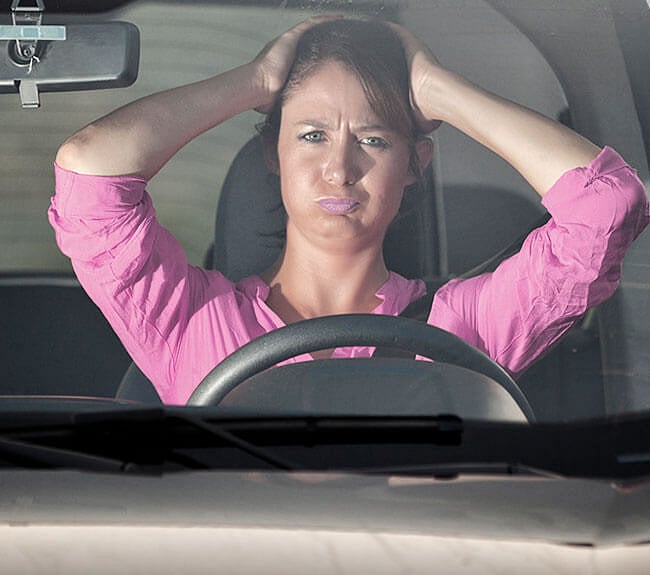
Car Insurance Tips: What to During a Carjacking or Stolen Car Event
In 2022, an estimated 68 stolen cars[1] were reported to the SAPS daily in South Africa. With many businesses requesting that their employees return to the workplace and cease working remotely, there's a chance that the number of cars on the road (and by extension, the number of hijackings) will increase.
While there's no way to predict if or when you might experience this crime, being mentally and physically prepared could help you recover more quickly or prevent it. Discover more as 1st for Women explains what you should know about hijackings or the theft of a motor vehicle, its impact on stolen car insurance claims and how First For Women car insurance can come to your aid.
The state of carjackings and car theft in South Africa
The South African Automotive Authority[2] (DEKRA) says that a stolen car every 22 minutes. The theft of a motor vehicle often occurs between 06h00 and 19h00 on Thursdays and Fridays. However, hijackings can take place. It can be a crime of opportunity as you travel down a poorly lit road or involve hijackers targeting specific vehicle makes and models.
It may seem that hijacking news and reporting do more to stoke fear than help you practically address your safety concerns. Knowing how you should react in this situation can help manage your fears and better prepare you to make a stolen car insurance claim.
What to do if you're carjacked
The following tips can help you keep your cool and minimise the fallout of a dangerous hijacking situation.
1. Before/during a carjacking
The best thing you can do for yourself or anyone with you during a hijacking is to stay calm. This means complying with the hijackers, provided their requests don't compromise your safety further. Move as far from the car as possible without resisting or addressing their efforts. If you must remove a child from the backseat, communicate your intentions clearly and keep your hands visible. Don't attempt to retrieve your belongings unless instructed to do so.
2. After a carjacking
Only once the hijacker and your vehicle have moved away from you should you start moving. Get to a safe place (maybe a busier road or petrol station) and request help immediately. Alert anyone who would be wondering about your whereabouts. If possible, write down what you had in your car, when the accident took place, where it took place and any details about the hijackers that you can remember.
You must contact the police as soon as possible to report the incident and what was stolen. Your next priority will be to cancel any stolen bank cards or identity documents, and if you had to leave house keys in your vehicle, change the locks as soon as possible.
You may need to visit a police station to report the incident in person. Ensure you do this as soon as possible, as you'll need a police report for insurance purposes.
3. What to do (and not to do) during a carjacking
● Don't escalate the situation by antagonising the hijackers, resisting them or trying to pursue them.
● Don't keep it to yourself. Hijacking is traumatic and you may need to talk to a friend or therapist about it to come to terms with it and move forward.
● Do look out for notable details that could help to identify your hijacker later. This includes unusual scars or facial features, clothes or details of the hijacker's car number plate, make and colour.
● Do commit the story of your hijacking to paper as soon as you can and in detail. Once the adrenaline wears off, you may forget several key details.
What to do if your car is stolen
Dealing with the theft of a motor vehicle may seem overwhelming. Here's what you can do:
-
The minute you realise your car has been stolen, make a note of the incident. This will include your location and when you last saw your car, and the condition it was left in. This information should include any belongings left in it when it was stolen.
-
Gather all the important documents, including copies of your ID and driver’s licence; details of your car — make, model, mileage and registration number — and any photos you have of it and your insurance policy. Once you have everything, call the police or visit a police station to relay details of the incident; then do the same with your insurer. Preparing yourself beforehand will help this process go more quickly and smoothly.
-
You will be given a case number from the SAPS to follow up on. However, the more time passes without news, the less likely your car will be recovered. Make sure you familiarise yourself with your car insurance policy so you know the next steps to replace it or receive a payout. Remember that if you've financed your car, the outstanding amount will need to be settled before you receive a payout.
Discover more about How to file a car insurance claim if your car is stolen.
How to reduce your carjacking or car theft risk
The following tips can reduce your risk of having your car stolen:
● Don't dawdle: Whether entering or exiting your car, avoid taking your time checking your messages or selecting a radio station.
● Double-check: After locking your car, always check if it's locked. Car jamming can prevent this, leaving your car accessible to potential thieves.
-
When driving, always lock your doors and keep your windows up.
-
If possible, drive in the centre lane rather than one of the side lanes.
-
If you believe you are being followed, drive to the nearest police station.
-
Be aware: it's tempting to tune out your surroundings during long commutes. Instead of blasting music loudly and fiddling with your belongings, be aware of what's happening outside your car.
-
Plan your commute: If you're visiting an unfamiliar area, familiarise yourself with the route beforehand. This will keep you from getting lost or distracted by your GPS.
-
Pull over safely: If you need to pull over for any reason, do so in a safe, public and busy place.
-
Lock it up: Avoid making your car an attractive prospect by locking up all your belongings in your boot, out of sight of passersby.
Car insurance for theft and carjackings
The best thing you can do for your peace of mind is to take out an appropriate level of car insurance cover. This will depend on many factors unique to your lifestyle, budget and the car in question. For example, a brand-new convertible will require high coverage and may require you to use specific anti-theft measures. An older car may not warrant this level of coverage, meaning you may have to make plans if you replace your car with a newer model.
Get a car insurance quote with 1st for Women
Nobody wants to experience a stolen car or hijacking. While we can't eliminate this crime from reality, we can give you peace of mind that you can replace your car when you make a carjacked or stolen car insurance claim. Apply for a quick, hassle-free car insurance quote online.
Sources:
[1] BusinessTech: Big jump in hijackings in South Africa
[2] DEKRA: Hijacking in South Africa

We Have Great
Insurance Products
At 1st for Women we know that each
woman is an individual who has
different needs.
More Content
Most popular

Insurance
How to Submit an Insurance Claim with First for Women?

Insurance
Your Car Insurance Claim Can Be Rejected if You Do These 10 Things
Latest posts
Related Posts


